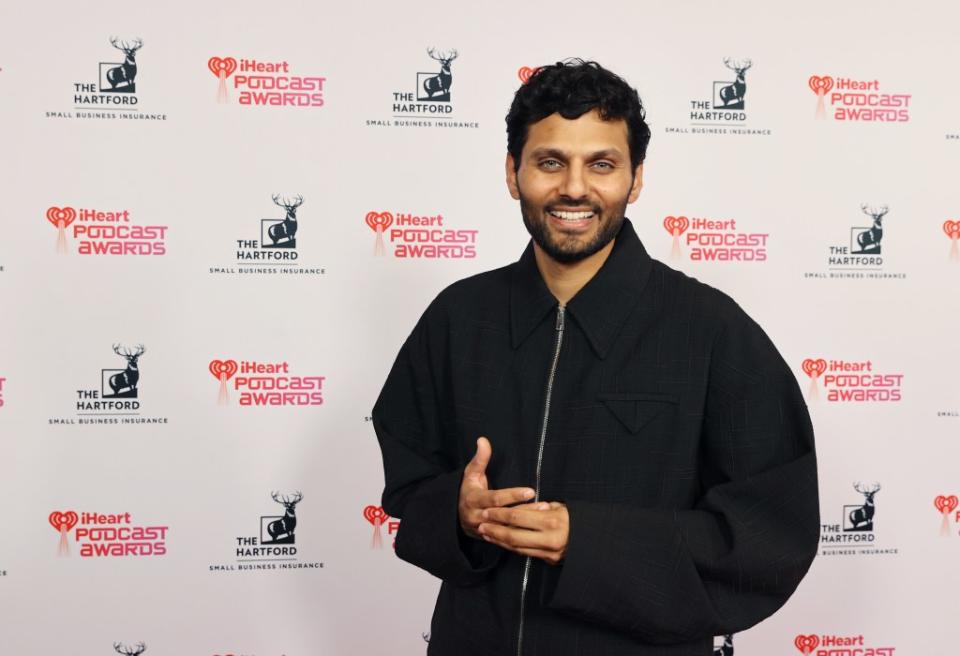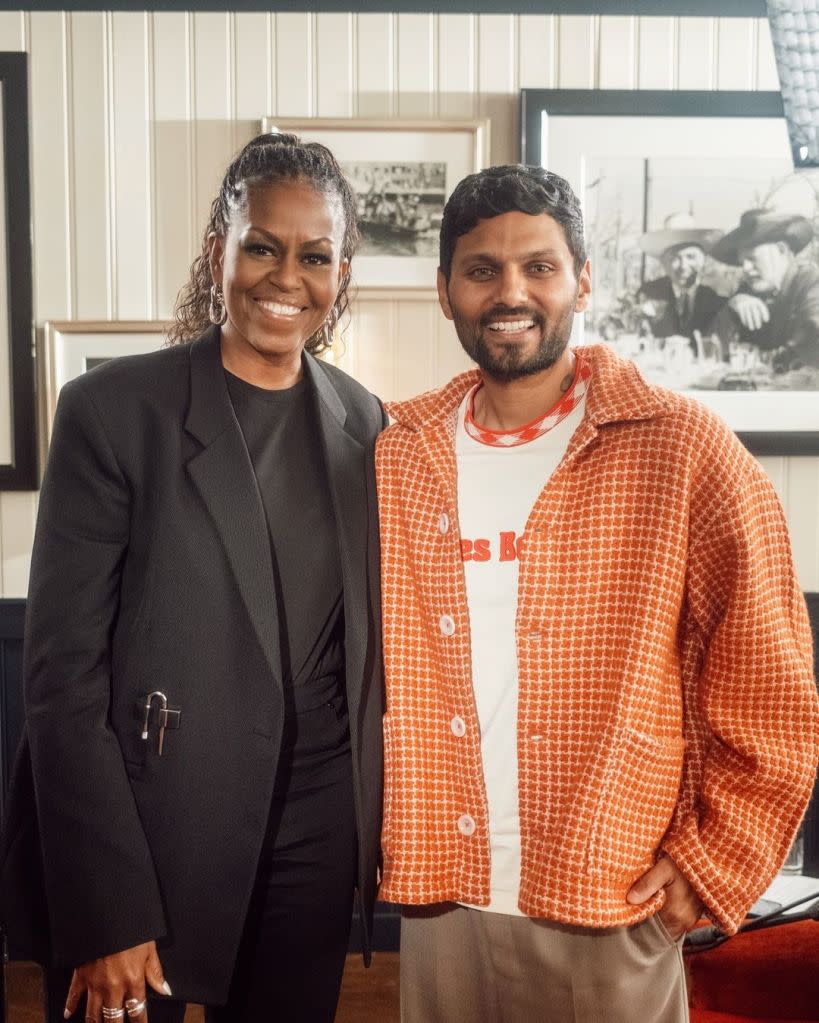Esquire, Hollywood Reporter declined to publish exposé about celeb-loved self-help guru Jay Shetty

- Oops!Something went wrong.Please try again later.
The Hollywood Reporter and Esquire refused to publish an explosive article by a freelance journalist who discovered that popular self-help podcaster Jay Shetty lied about aspects of his biography.
John McDermott spent a year researching the story about Shetty, which was eventually published by the British-based outlet Guardian.

Shetty, the author of two bestselling books who also officiated the wedding of Ben Affleck and Jennifer Lopez, plagiarized social media posts and misrepresented parts of his life story, including the claim that he spent three years in India as a monk, according to McDermott’s reporting.
But McDermott was initially tasked with reporting the story by Esquire, the popular men’s magazine owned by Hearst Communications, according to the news site Semafor.

When McDermott’s story began to take on a more critical tone, he was informed by the editors at Esquire that they would not publish the article, it was reported.
McDermott then approached THR, but the Penske Media-owned publication backed off after Shetty’s public relations handlers complained about him, Semafor reported.
When reached by The Post, McDermott declined to comment.
“THR decided not to proceed further once they learned of a conflict of interest between the subject and the reporter attached to the pitch of the story,” a Penske rep told The Post.
A Penske Media spokesperson told Semafor that THR’s decision to pass on the Shetty story “has nothing to do with Jay Shetty’s PR.”
Instead, the company said it passed on the article due to a “conflict of interest’ involving McDermott.
The Post has sought comment from Shetty and Hearst.
Hearst, whose media properties such as Esquire and Cosmopolitan were once known for publishing hard-hitting, aggressive stories, have reportedly become more gun-shy due to fears of being sued.

In 2018, Esquire reporters who investigated sexual misconduct allegations leveled against director Bryan Singer said their corporate bosses at Hearst killed the story before it was set to be published. No explanation was given as to why the decision was made.
Singer, whose Hollywood credits include “Bohemian Rhapsody,” “The Usual Suspects,” “Valkyrie” and several films in the “X-Men” series, was accused of having sex with several underage boys.
The allegations were eventually detailed in a story published by the Atlantic.

Another Hearst property, Road & Track magazine, published a critical piece about Formula One racing written by a left-leaning writer.
But the story was removed from the publication’s website hours after it went live without any explanation given.
Last month, Rolling Stone, which is owned by Penske Media, was rocked by the announcement that its editor-in-chief, Noah Shachtman, would be resigning.

Shachtman, the former top editor at Daily Beast, reportedly clashed with Rolling Stone CEO Gus Wenner, who was frustrated by the magazine’s reliance on anonymous sources, according to Semafor.
His departure has called into question the future publication of several stories that were in the works, according to Semafor.

